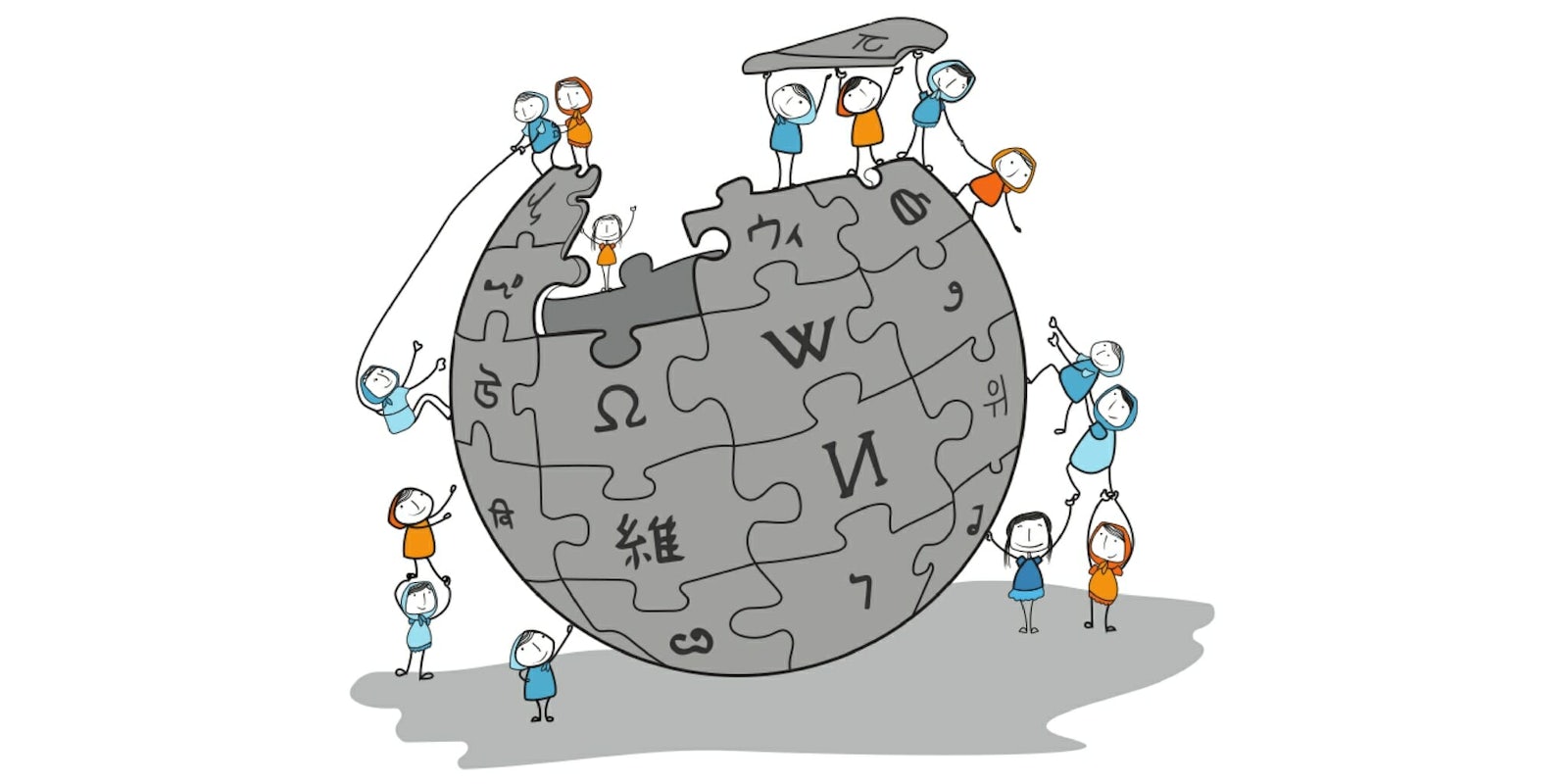It’s astounding to learn later in life just how much of history is written out of what is taught in public schools across the United States. Racism and bigotry, along with societal contributions made by people of color—often women—are whitewashed from textbook pages and made footnotes in the background of other people’s accomplishments.
Online, it’s not much better. According to the United Nations Educational, Scientific and Cultural Organization (UNESCO), less than 1 in 5 of Wikipedia biographies, just 17 percent, are written about women. However, on International Women’s Day, UNESCO has partnered with the Wikimedia Foundation to change that. With the #Wiki4Women campaign, anyone help write, improve, or translate biographies for women who have gone unnoticed by the online encyclopedia.
“The #WIKI4WOMEN initiative calls everyone to take a few minutes (from 10 minutes) of their time to create, enrich or translate, in as many languages as possible, Wikipedia profiles of women committed in the fields of education, science, culture, social and human sciences, or communication and information,” UNESCO’s website states.
25.000 articles are created everyday on #Wikipedia, yet only 17% of biographies are about women.
— UNESCO 🏛️ #Education #Sciences #Culture 🇺🇳 (@UNESCO) March 7, 2018
The #TimeIsNow to bridge the gender gap in the digital space!
On 8 March join #wiki4women! 👉 https://t.co/Bpydhqcgfd#InternationalWomensDay #IWD2018 pic.twitter.com/OAIqQ6e81Y
According to the #Wiki4Women website, getting started is relatively straightforward: First, create a Wikipedia account, use your account to sign up for the event, and then begin “assigning” yourself articles to write or edit through the event page. The project also suggests contributing members join WikiProject Women in Red, which seeks to turn red links (links that do not have a page attached to them) into “blue” or active links with pages attached. And don’t forget to register with UNESCO for a participation certificate.
If you don’t have the time to contribute, or maybe know of more women with Wikipedia than without, #Wiki4Women has several suggestions for how you can help, along with the estimated time it’ll take you to do so: Promoting the project on social media takes two minutes, whereas suggesting a person, a list of women, or a resource (such as a book or website) takes three minutes each.
According to the “course” activity for the event, so far 20 articles have been created, 50 articles have been edited, 178 editors had added themselves to the project, and more than 40,000 words have been added to Wikipedia pages about women. And in UNESCO’s Paris headquarters, more than 150 contributors, including UNESCO staff, civil representatives, and students, are working to help bridge the gap in women’s representation.
Great happening @UNESCO HQ to create and enrich Wikipedia portraits of committed women in education, science, culture and communication #Wiki4Women #IWD2018 #WomensDay https://t.co/fuWKgOnXVH pic.twitter.com/yQh0AEJp7s
— Piia Immonen (@PiiaImmonen) March 8, 2018
#wiki4women à chacune sa notice, seulement 17% des personnalités référencées dans #Wikipedia sont des femmes pic.twitter.com/k2tniImux2
— INA thèque (@Inatheque1) March 8, 2018
Some women have also begun tweeting out the articles they’ve helped contribute. New additions include biographies on Gerty Archimede, the first female lawyer to pass the Guadeloupe, France, bar exam, and the second Black woman elected to the French National Assembly; Mexican writer Guadalupe Loaeza; and Senegal women’s rights activist Bineta Diop.
My contribution to #WIKI4WOMEN #8M #WomensDay https://t.co/eFnjQ8JhEu@UNESCO @UN_Women @nonunadimeno
— Rosanna Rizzi (@rosannarizzi) March 8, 2018
I’m keeping an eye on the awesome @UNESCO / @Wikimedia event in Paris: #Wiki4Women The good news is that u don’t have to be in Paris to participate; you can do so online from anywhere! Shout out to our friends @lessanspagEs who are facilitators (and friends!) and @wikiwomeninred
— Rosie Stephenson-Goodknight 👩🏻✍🏻 (@Rosiestep) March 8, 2018
The world needs the insight of half the population.
— Sunny Varkey (@sunnyvarkey_) March 8, 2018
This #InternationalWomensDay, I’m joining @UNESCO in calling for more support for women in the world of technology #WIKI4WOMEN
Generations For Peace Arabic Copywriter Abeer joining in on the #Wiki4Women edit-a-thon from #Amman, #Jordan! Stay tuned for the final @Wikipedia article! #PressForProgress #IWD2018 #WomensDay #WikiGap pic.twitter.com/y2sDE16DpU
— GenerationsForPeace (@Gens_For_Peace) March 8, 2018
While female representation in executive leadership positions, entertainment, politics, and STEM fields continues to grow at a snail’s pace, it’s at least comforting that women can help contribute to the legacies of women from the past by making sure their influences are remembered in the future.


